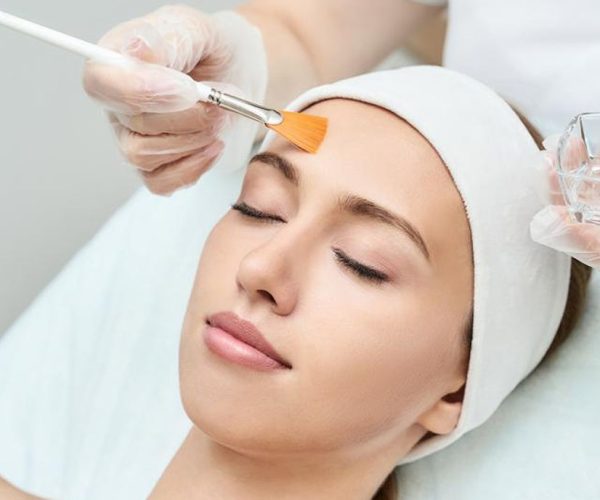Sensitive Skin? What You Need to Know Before Getting a Chemical Peel in Port Moody

Strong 8k brings an ultra-HD IPTV experience to your living room and your pocket.
Chemical peels are an excellent way to refresh and rejuvenate the skin, but for those with sensitive skin, the process can seem intimidating. If your skin tends to react easily to skincare products, environmental changes, or professional treatments, you may wonder whether a chemical peeling treatment in Port Moody is a safe option. The good news is that chemical peels can still be beneficial for sensitive skin when approached with the right precautions.
This guide will help you understand how chemical peels work, their potential effects on sensitive skin, and how to prepare for the best possible results.
What Is a Chemical Peel?
A chemical peel is a skin-resurfacing treatment that uses a chemical solution to exfoliate the outer layer of the skin. Depending on the strength of the peel, it can target issues such as acne, pigmentation, fine lines, and rough texture. There are three main types of chemical peels:
Superficial Peels: These use mild acids, such as alpha hydroxy acids (AHAs) or beta hydroxy acids (BHAs), to gently exfoliate the top layer of the skin. They are often suitable for sensitive skin.
Medium Peels: These penetrate deeper and typically contain trichloroacetic acid (TCA) or stronger AHAs. They may be too harsh for highly reactive skin but can be used cautiously.
Deep Peels: These are the most intensive, using strong acids like phenol to penetrate multiple layers of skin. They are generally not recommended for sensitive skin.
Can People with Sensitive Skin Get a Chemical Peel?
Yes, but with caution. Sensitive skin is more prone to irritation, redness, and inflammation, which means choosing the right type of peel and following proper aftercare is crucial. The key is to select a gentle peel, undergo a patch test, and work with an experienced skincare professional who understands how to tailor the treatment for your skin type.
How to Determine if Your Skin Is Too Sensitive for a Peel
Before deciding on a chemical peel, it’s important to assess your skin’s sensitivity level. Some signs that your skin may be overly sensitive include:
- Frequent redness or flushing
- A tendency to react negatively to skincare products
- A history of conditions like rosacea or eczema
- A burning or stinging sensation with mild products
- Dryness or peeling even without using strong exfoliants
If you experience any of these symptoms, consult a skin care professional to determine whether a chemical peel is right for you.
Best Types of Chemical Peels for Sensitive Skin
Not all chemical peels are created equal, especially when it comes to sensitive skin. The following peels are generally considered safe and effective for those with delicate skin:
- Lactic Acid Peels
Lactic acid is a mild AHA derived from milk. It gently exfoliates while helping to hydrate the skin, making it an excellent choice for those who experience dryness or irritation. It works well for brightening and evening out skin tone without causing excessive redness.
- Mandelic Acid Peels
Mandelic acid is another AHA but has a larger molecular structure, meaning it penetrates the skin more slowly. This reduces the risk of irritation while still providing benefits such as exfoliation and acne control.
- Enzyme Peels
Enzyme peels use natural fruit enzymes (such as papaya or pineapple) to exfoliate the skin. These peels are incredibly gentle and suitable for sensitive skin types. While they may not offer the same depth of exfoliation as chemical acids, they still help improve skin texture and radiance.
- Polyhydroxy Acid (PHA) Peels
PHAs, such as gluconolactone and lactobionic acid, provide similar benefits to AHAs but with a lower risk of irritation. They are an excellent option for those who want a mild chemical exfoliation without compromising their skin barrier.
How to Prepare for a Chemical Peel If You Have Sensitive Skin
Proper preparation can significantly reduce the chances of irritation and enhance your results. Here are some key steps to take before your appointment:
- Do a Patch Test
A patch test is essential for those with sensitive skin. A small amount of the peel solution is applied to a small area of your skin to see how it reacts. If no severe irritation occurs within 24 to 48 hours, the peel may be safe.
- Avoid Harsh Skincare Products
In the days leading up to your peel, avoid using strong exfoliants, retinoids, or harsh cleansers that could weaken your skin barrier. Stick to gentle, hydrating skincare products.
- Keep Your Skin Hydrated
Well-moisturized skin is more resilient and better able to handle exfoliation. Use a gentle, fragrance-free moisturizer to maintain hydration.
- Protect Your Skin from the Sun
Sun exposure can increase skin sensitivity. Wear a broad-spectrum SPF 30 or higher daily, and avoid direct sun exposure before and after your peel.
- Communicate with Your Skincare Professional
Inform your esthetician or dermatologist about any allergies, skin conditions, or past reactions to treatments. They can customize the peel strength and ingredients to suit your needs.
What to Expect During a Chemical Peel
A chemical peel is usually a quick procedure. Here’s what you can expect:
- Your skin will be cleansed to remove any oils or impurities.
- The peel solution will be applied and left on for a few minutes.
- You may feel a slight tingling or warmth, but it shouldn’t be painful.
- The peel will be neutralized or removed, and a soothing moisturizer will be applied.
For superficial peels, there is little to no downtime, but mild redness may occur. Medium peels may cause light peeling or flaking over a few days.
Post-Peel Care for Sensitive Skin
After a chemical peel, your skin will be more delicate, so proper aftercare is crucial:
- Keep Your Skin Hydrated
Use a soothing, fragrance-free moisturizer to help restore your skin’s barrier. Ingredients like hyaluronic acid, ceramides, and aloe vera can be beneficial.
- Avoid Harsh Ingredients
For at least a week, avoid retinoids, exfoliants, and alcohol-based products that could further irritate your skin.
- Stay Out of the Sun
Your skin will be more sensitive to UV rays after a peel. Continue using SPF daily and wear a hat if you plan to be outdoors.
- Don’t Pick or Peel Your Skin
Flaking or mild peeling may occur, but it’s essential to let your skin shed naturally. Picking at your skin can lead to irritation and hyperpigmentation.
- Use a Gentle Cleanser
Stick to a mild, non-foaming cleanser to avoid stripping your skin of moisture.
When to Seek Professional Advice
If you experience excessive redness, prolonged irritation, swelling, or discomfort after a peel, contact a skincare professional. While mild reactions are normal, severe symptoms could indicate an allergic reaction or over-exfoliation.
Final Thoughts
A chemical peel can be a great addition to your skincare routine, even if you have sensitive skin. The key is to choose a mild peel, prepare your skin properly, and follow aftercare instructions to minimize irritation. If you’re considering a chemical peel in Port Moody, consult a professional who can customize the treatment to your skin’s needs. With the right approach, you can achieve a refreshed, radiant complexion without compromising your skin’s health.
Note: IndiBlogHub features both user-submitted and editorial content. We do not verify third-party contributions. Read our Disclaimer and Privacy Policyfor details.






